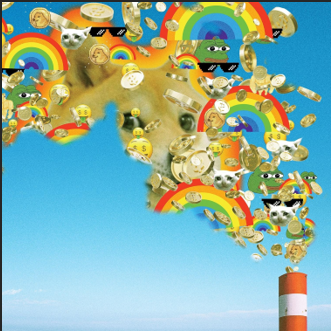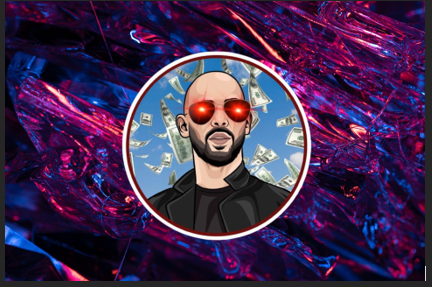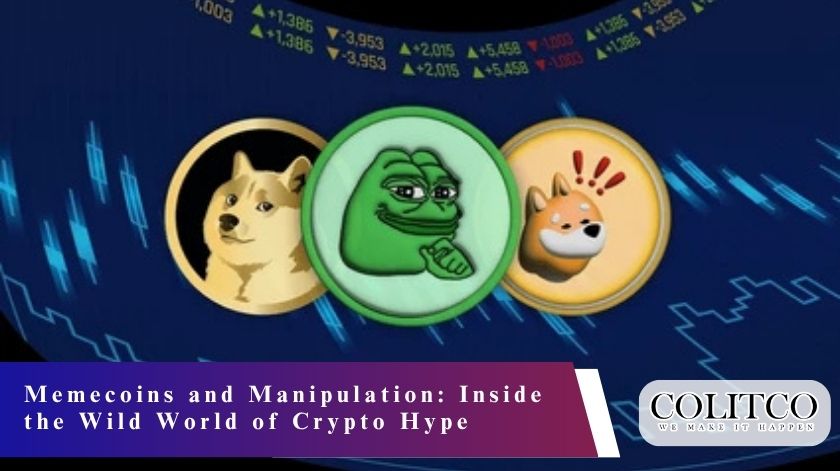When journalist Matt Shea discovered that a memecoin had been created in his name, he didn’t expect it to spark a digital frenzy worth millions—nor did he anticipate becoming the face of an online financial experiment led by one of the internet’s most controversial figures.

It all began when a follower alerted Shea to the existence of a memecoin called Dork Nerd Geek ($DNG)—a jab coined by influencer Andrew Tate, whom Shea had previously investigated for serious allegations including human trafficking. Within an hour of its launch, $DNG’s market cap exploded from $29,000 to an astonishing $800,000.
Shea had unwittingly become the subject of an online spectacle, where digital currencies tied to his name surged and collapsed in real time—all during a live stream hosted by Tate.
Words Turned Into Coins
As Tate’s livestream unfolded, things escalated rapidly. He began casually mentioning or mocking Shea, and with each phrase, new tokens were minted—many using derogatory or offensive names. These included coins like “Disgraced News Gatherer,” “Matt Shea is a faggot,” and “Take My Wife Tate (CUCK),” some even featuring personal photos pulled from Shea’s Instagram.
Each utterance by Tate triggered a reaction in the market. At one point, a token named “FUCK MATT SHAE [sic]” saw a dramatic price spike mere seconds after being mentioned. A moment later, Tate added, “…is not a generational asset,” causing the coin’s value to plummet. Even when he joked about taking a bathroom break, coin values fluctuated wildly, showing how meme-driven tokens can be subject to absurd levels of speculation.
Millions Lost in Minutes
By the end of the stream, hundreds of Matt Shea-related tokens had flooded the blockchain. Some fans attempted to mimic the coins Tate was promoting, hoping to ride the wave of speculation. But the aftermath was sobering.

While a few early movers made significant profits—including one anonymous wallet that earned over $240,000—most participants saw their investments vanish. An estimated $2 million was spent on Shea-themed memecoins during the broadcast. Hundreds of millions more were pumped into other coins promoted by Tate, only for the majority of them to crash back to zero.
Also Read: Collingwood vs Hawthorn: Magpies Dominate Hawks in AFL 2025 Round 12 Clash
The Rise and Fall of Memecoins
Memecoins, unlike established cryptocurrencies such as Bitcoin or Ethereum, often lack utility or backing. Their value is driven largely by hype, social media influence, and community sentiment. As a result, they are particularly vulnerable to “pump and dump” schemes, where prices are artificially inflated and then sold off for profit, leaving regular investors with worthless tokens.
Crypto investigator Coffeezilla, along with online sleuths like bored2boar and StarPlatinum, have documented how Tate and his close associates may have repeatedly executed such schemes using his massive online influence. These findings have yet to be formally challenged in court, and Tate’s team declined to comment when contacted by reporters.
Is Every Memecoin a Scam?
According to David Gerard, author of Attack of the 50 Foot Blockchain, the answer is an unequivocal “yes.”
“All of this is like a big game of pretend with made-up financial instruments,” Gerard stated. “It’s printing your own made-up money and convincing someone else to pay you real money for it.”
Despite this, memecoins continue to captivate audiences—particularly younger investors drawn to the fusion of internet culture and speculative finance. From Dogecoin to TrumpCoin, these tokens often promise quick riches and viral notoriety. But the reality is far grimmer: the vast majority of investors lose money.
Political and Ethical Concerns
The memecoin phenomenon isn’t limited to internet celebrities. Figures like Donald Trump have also entered the crypto space, launching branded NFTs and now promoting cryptocurrencies. His actions have drawn criticism from ethics watchdogs, with some experts calling it a “roadmap for corruption.”
$DMAGA airdrop just landed on #MemePay 🪂
Stand to win @DarkMagaCoin $DMAGA airdrop with every MemePay payment!
🔥 Every $1/€0.88 spent = 1 MemePay Point
🪂 Redeem raffle tickets to win $DMAGA airdrop
⏲️ All transactions since Oct 30, 2024 are counting towards your MemePay… pic.twitter.com/jIPqQimZlG— Memeland ❤️ Memecoin (@Memeland) May 22, 2025
When prominent personalities engage in unregulated crypto promotions, they blur the lines between entertainment, politics, and finance—leaving ordinary people vulnerable to financial harm.
A Cautionary Tale
Matt Shea’s unexpected plunge into the world of memecoins serves as a striking example of the chaotic intersection between social media clout and digital currencies. What started as online mockery rapidly evolved into a real financial event—costing millions and raising urgent questions about crypto ethics, manipulation, and regulation.
As the crypto space continues to evolve, one thing is clear: memecoins aren’t just jokes. For many, they’re costly lessons in hype-driven speculation.












